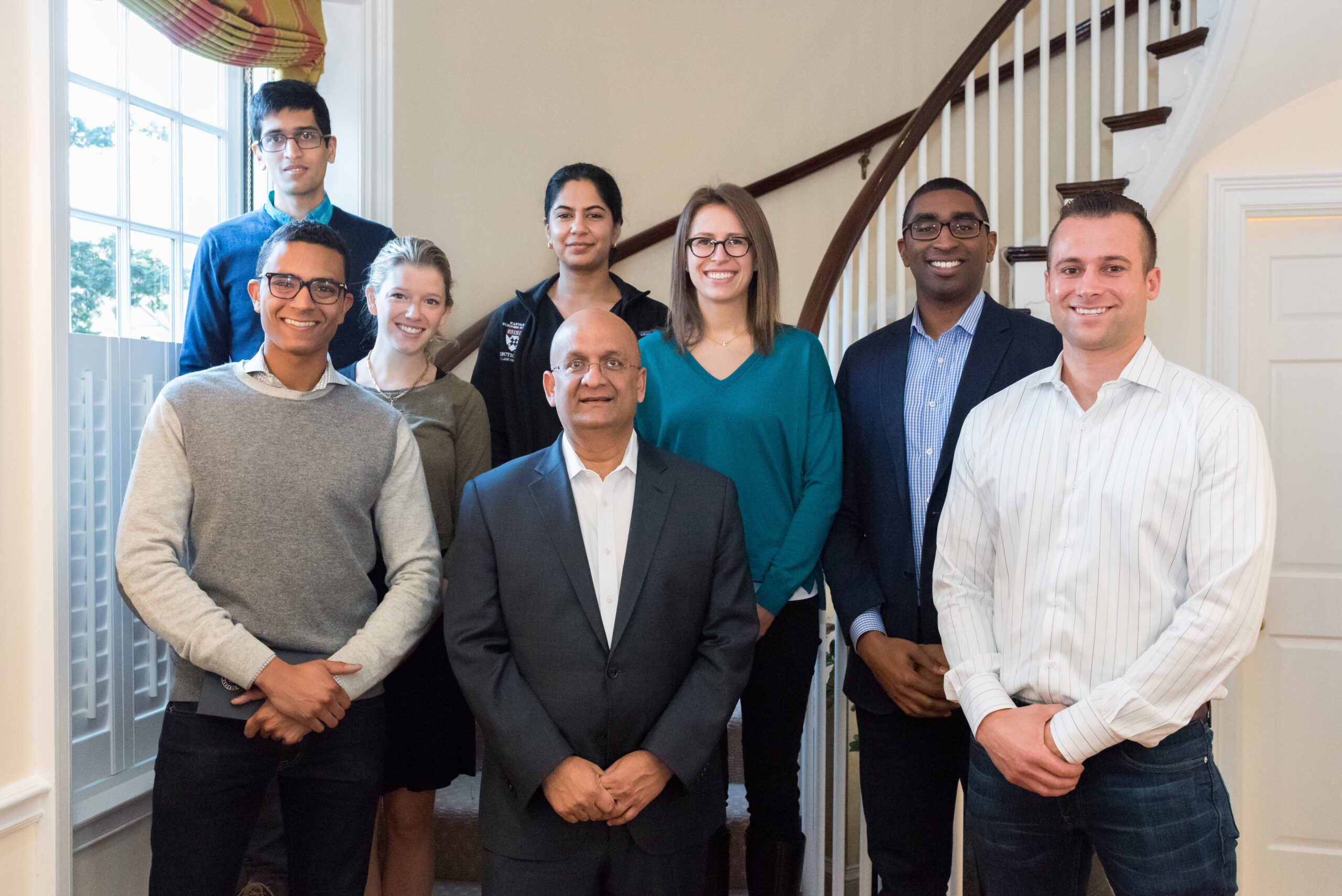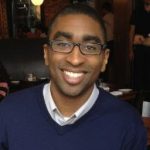
Eight Students Sit Down with Dean Nohria to Discuss HBS’s Place in the World
One of the most powerful men in the business world doesn’t work in the private sector. His name is Nitin Nohria, and as Dean of one of most powerful institutions in the capitalist ecosystem, his stewardship affects hundreds directly as students and thousands indirectly through the school’s academic output, which ripples across top schools and corporations around the world. Over these past five years, he has left a tremendous mark on the school that cannot be ignored.
Dean Nohria graduated from the Indian Institute of Technology in Mumbai in 1984 with a bachelor of technology in chemical engineering and went on to earn his Ph.D. in management at MIT’s Sloan School of Management in 1988. He later joined the HBS faculty, where he became one of the school’s most popular professors. In 2010, he was named the 10th Dean of the Business School, and in short order, he partnered with the HBS community to set out an ambitious set of objectives. These included innovating the MBA program through the addition of experiential learning, creating an environment of inclusion through initiatives targeted towards women, continuing to strengthen HBS’s global impact, and integrating HBS into the Harvard community as a catalyst to spark entrepreneurial interest. There have been many victories across these objectives and, as expected, a handful of challenges.
Once or twice a month, the Dean hosts a breakfast with eight current MBA students to hear about what’s on their minds. Fortunately, this 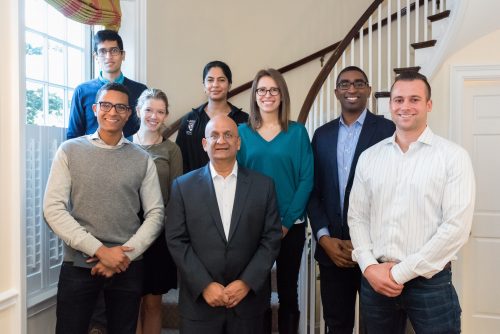 Harbus writer got selected to attend his most recent session, where he addressed challenging questions from all sides. Here are a few of the topics discussed at the breakfast.
Harbus writer got selected to attend his most recent session, where he addressed challenging questions from all sides. Here are a few of the topics discussed at the breakfast.
Student: When you look at the biggest criticisms of Harvard Business School, which ones do you worry about the most and least? What criticism keeps you up at night?
Dean Nohria: I’ll start with one of the criticisms I don’t worry about. Many people assume that HBS students are cocky, self-centered people who solely focus on making money over making an impact in their community. This couldn’t be further from the truth. When you look at volunteerism and non-profit board leadership, our graduates are disproportionately represented when compared to the rest of society. I’m proud of the impact our alumni have in their communities.
One of the things that does worry me is the perception of business school in the minds of young business leaders. Is business school still viewed as a real academic experience versus this being a two-year vacation from work or a place to come get a new job? Is the academic experience the “icing on the cake” or “the cake”? I’m not saying that these other purposes aren’t important. Business school provides a unique opportunity to reflect and pivot if necessary, but the academic experience should be at the core.
Student: Speaking of the academic experience, you’ve announced quite a few changes to the Required Curriculum (first) year of the MBA since starting in 2010, and now it’s changing again for the upcoming class. How do you think about making these changes? What’s worked well and what hasn’t worked so well? Why make FIELD 3 an elective course?
Dean Nohria: Leadership is about knowing, doing, and being. Here at Harvard Business School, we’ve been rooted in the case study method, which primarily focuses on “knowing” and “doing.” “Being” is what FIELD (Field Immersion Experiences for Leadership Development) focuses on with students. FIELD is designed to put students into small teams that can get things done.
Anything new will take time to evolve. It took the case study method over 20 years to develop into what we have today, so it is not surprising that the FIELD curriculum could go through multiple iterations. We’ve been listening to feedback from the HBS community, and the changes represent this feedback. When we specifically look at the entrepreneurship portion of FIELD (bit.ly/1uS1euy), we notice a feedback pattern that matches another course that used to be in the RC year: Negotiations.
About a third of the students love the idea of launching a micro-business through FIELD 3, and another third of the class strongly dislikes it due to the tight time-frame and equity split, among other reasons. This creates too much variance in the required curriculum, so it makes sense to place this portion of FIELD into the second year. Negotiations used to be a first year course, and it went from being the bottom ranked class of the RC year to the top ranked elective in the second year. We feel as though FIELD 3 could have the same outcome.
Student: What is the hardest part of your job?
Dean Nohria: Not being about to work directly with students each day is the hardest part about being in this role. Teaching is my passion, and I miss it deeply. The Dean job is not what most professors want to do because it takes you out of the classroom. I loved teaching my students, and for 20+ years, this is what kept me going every day. My favorite groups of students were first-semester RCs and second-semester ECs. The newest students were always full of energy, and the outgoing ECs were a welcomed challenge. I’m enjoying my job now, but at some point, I’d love to get back into the swing of things.
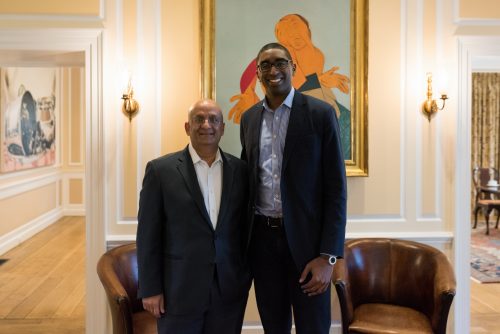 Student: Income inequality continues to be a major source of social unrest in America and other countries around the world. You’ve stated before that business should be force of good, but how can future leaders make a difference if they can’t fully empathize with others from different socioeconomic groups. How can HBS play a role in making sure that the world’s next business leaders represent and understand the complexities of those across different income brackets?
Student: Income inequality continues to be a major source of social unrest in America and other countries around the world. You’ve stated before that business should be force of good, but how can future leaders make a difference if they can’t fully empathize with others from different socioeconomic groups. How can HBS play a role in making sure that the world’s next business leaders represent and understand the complexities of those across different income brackets?
Dean Nohria: This issue of income inequality is a growing concern and the current presidential election has placed it front and center in the US. It’s something that we think very hard about as we try to achieve our mission of educating leaders who make a difference in the world. One important element is bringing together people of different backgrounds and experiences in the classroom where they can hear and learn from one another. We are fortunate to have generous alumni who provide fellowships that allow any accepted student to attend. In fact, by making it possible for those students to attend, we are creating the conditions on campus that reflect the broader society.
Another way in which we are helping to address this issue is through research. For example, we launched the US Competitiveness project in 2011 with the express goal of studying how the U.S. can compete successfully in the global economy while supporting high and rising living standards for Americans. And our faculty write many cases about social enterprises around the world that are addressing these kinds of issues.
Student: Under your leadership, HBS has become a model for how to create an environment where women can thrive (more female case protagonists and faculty members, WSA support, etc.). What can be learned from your success here, and how can it be replicated across other underrepresented minority groups? (sexuality, ethnicity, race, etc.)
Dean Nohria: This is still very much a work in progress for the School, and although we placed an emphasis on inclusivity for women stemming from the Women’s 50th anniversary year, we’ve also been working on ways to make HBS more inclusive for other underrepresented minorities.
One thing I’ve learned is that although these issues (sexuality, ethnicity, race, etc.) fall under the inclusion category, the range of perspectives and experiences varies widely. There is no single step we can take to create inclusion, and when we see a bleak and troubling report like the one issued by the Association of American Universities on sexual assault this year, it reminds us of how far we have to go—but also deepens our resolve. So perhaps our greatest collective learnings have been that we must continue to make these issues discussable, we must hold people accountable for their actions when they transgress, and we must engage all the members of our community in improving the situation.
Student: Most HBS students have shown that they are not afraid to pull long hours (80-120 hour weeks) in an effort to complete their work, but the chorus around “work-life balance” has been increasing in volume for years. The European “employee friendly” model of capitalism has been gaining traction around the world (more vacation days, mandatory maternity leave, etc.). Does HBS have a responsibility to promote corporate governance or public policy that promotes holistic living standards as championed in the rest of the world?
Dean Nohria: We certainly have a role to play, but as an educational institution our responsibility is to study issues like this and, through research and cases, bring a range of ideas and insights to practicing managers and to the classroom. Several of our faculty look closely at the way firms and individuals deal with this challenge. For example, Leslie Perlow’s work chronicling how the Boston Consulting Group tried to create more “down” time for their consultants has received a lot of attention. And Boris Groysberg has written several cases and an article in HBR about how to manage the work/life balance. I personally believe that firms who have found a way to help their employees achieve better work-life balance will have a more vital and productive workforce in the long-run.
Student: So what’s next for HBS? What are your next big initiatives?
Dean Nohria: I feel like we’re poised for a second act. We now have five years of history to reflect on these new initiatives that have been rolled out. FIELD and HBX are going to continue to evolve as we integrate them more deeply into the academics. Specific research around the “internet of things” and machine learning will be surfacing over these next few years, and we’re going to continue to expand globally through platforms like the Harvard Business Review, which is now translated into 13 languages. Diversity will also continue to be a top priority as we continue to find ways to create an inclusive environment for all students.
Thank you Dean Nohria for your time.For readers that have any new questions, please feel free to email General@Harbus.org
—————————
Terrance Rogers (HBS ‘17) worked in Financial Services for 5 years before coming to HBS, and he’s passionate about figuring out how to use business and public policy to improve people’s lives. Born and raised in Georgia, he’s a proud public school kid who’s still figuring out how to tell people he goes to Harvard. You can follow him on Twitter and Instagram @bigtrogers.
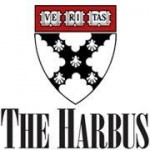
ESTABLISHED IN 1937, THE HARBUS NEWS CORPORATION IS THE INDEPENDENT STUDENT NEWS PUBLISHER OF HARVARD BUSINESS SCHOOL.

